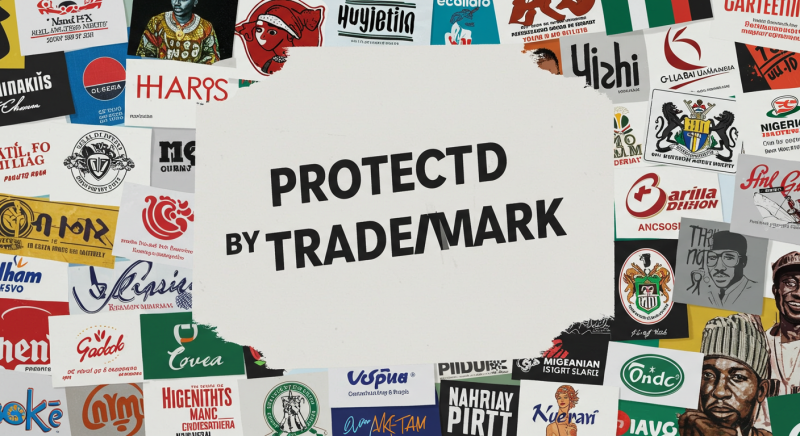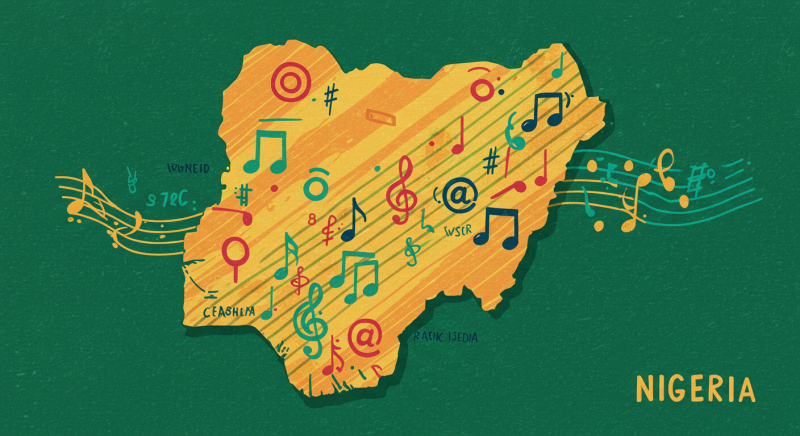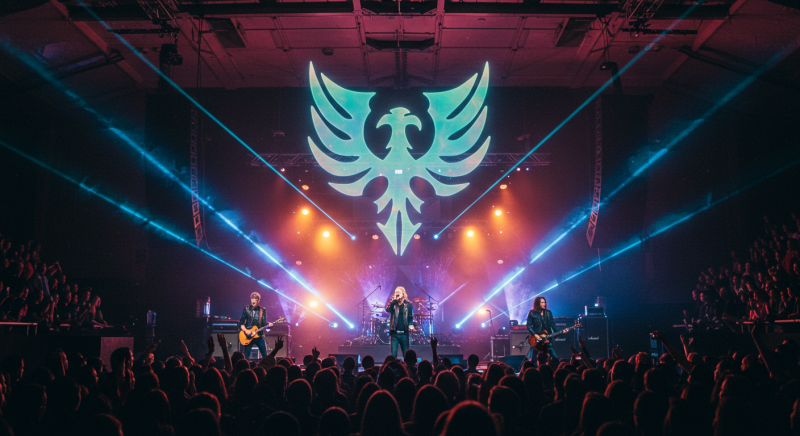Imagine pouring your soul into a groundbreaking hit, only to wake up and find someone else profiting from your name. Every beat, every lyric, every spotlight moment reflects years of dedication, passion, and resilience. When your art resonates with millions, the fear of seeing your brand identity co‑opted or diluted can be paralyzing. This is why Trademark Registration for Nigerian Music and Entertainment isn’t just a legal formality—it’s a lifeline, ensuring that the artist’s name, logo, and creative vision remain exclusively theirs, safeguarding the emotional and financial investments that define a successful career.
Trademark Registration for Nigerian Music and Entertainment
In today’s fast-evolving creative landscape, Trademark Registration for Nigerian Music and Entertainment stands as a vital shield that empowers artists and entertainment businesses to protect their identities and secure their legacies.
This article delivers an informative and heart-driven exploration of Trademark Registration for Nigerian Music and Entertainment, blending the urgency of a news update with the clarity of a how‑to guide. Through detailed analysis, expert insights, and the latest industry data, you will discover actionable steps to navigate Trademark Registration for Nigerian Music and Entertainment effectively, reinforcing your brand and amplifying your voice in Nigeria’s dynamic entertainment arena.

Key Takeaways
Trademark Registration for Nigerian Music and Entertainment empowers artists and producers to establish unassailable ownership of their brand identities, fending off copycats and counterfeiters in an industry prone to piracy and infringement.
Championing Trademark Registration for Nigerian Music and Entertainment not only secures legal rights but also enhances market value by signaling professionalism to sponsors, partners, and global collaborators.
By embracing Trademark Registration for Nigerian Music and Entertainment early, stakeholders can leverage their protected marks for licensing deals, merchandising rights, and cross‑border expansion, transforming creative assets into sustainable revenue streams.
Understanding Trademark Registration for Nigerian Music and Entertainment
Trademark Registration for Nigerian Music and Entertainment begins with recognizing that marks—whether names, logos, or slogans—are the cornerstones of brand identity in the entertainment sector. The Nigerian Trademarks Registry, under the Trademarks Act, affords proprietors exclusive rights to use their registered mark in connection with designated goods or services, an essential safeguard in an industry where reputation is currency ProShare. With Nigeria’s trademark filings ranking 136th globally and experiencing a 31.2% increase in 2023, the momentum toward brand protection has never been stronger WIPO.
Trademark Registration for Nigerian Music and Entertainment also offers a deterrent effect: once an artist secures a registered mark, third parties are less likely to risk infringement, knowing that legal remedies—such as injunctive relief and damages—are readily enforceable. This peace of mind allows creatives to focus on innovation rather than litigation.
The Legal Framework Behind Trademark Registration for Nigerian Music and Entertainment
The backbone of Trademark Registration for Nigerian Music and Entertainment is a robust statutory and regulatory regime designed to protect creative brands and foster industry growth. At its core lies the Trademarks Act, which sets out the definitions of registrable marks, the exclusive rights conferred by registration, and the procedural rules that govern every stage of the trademark journey.
Under this Act, anyone seeking Trademark Registration for Nigerian Music and Entertainment must adhere to clear legal standards, from the distinctiveness requirements for logos and stage names to the formalities of filing and renewal.
Nigeria’s Intellectual Property Office is the national authority charged with processing applications for Trademark Registration for Nigerian Music and Entertainment. Through its online portal, applicants submit representations of their marks—whether word marks, stylized graphics, or sound marks—and specify the classes of goods and services, such as recorded music, live performances, merchandise, and promotional materials.
The office examines each application against both absolute and relative grounds: absolute grounds ensure that a mark is inherently capable of distinguishing one brand from another, while relative grounds prevent conflicts with earlier registrations or well‑known marks.
Distinctiveness plays a pivotal role in Trademark Registration for Nigerian Music and Entertainment. A mark that is too descriptive—such as “Sweet Beat Records”—may be refused, whereas a coined term or a unique logo, like a stylized emblem, typically clears the distinctiveness hurdle more smoothly. The legal framework also provides safeguards against registration of marks that are misleading, scandalous, or contrary to public policy, ensuring that the landscape of Trademark Registration for Nigerian Music and Entertainment remains professional and credible.
Opposition and cancellation procedures form another key pillar in the legal framework for Trademark Registration for Nigerian Music and Entertainment. Once a mark passes substantive examination, it is published for public scrutiny, triggering a window during which competitors or rights holders can formally oppose the registration. If an opposition arises, the legal rules prescribe a structured process of counter‑statements, evidence and, if necessary, hearings before a dedicated tribunal. This mechanism reinforces the integrity of Trademark Registration for Nigerian Music and Entertainment by balancing the rights of newcomers with those of established brands.
Beyond national borders, the legal framework for Trademark Registration for Nigerian Music and Entertainment extends through regional and international treaties. Nigeria is a member of the Paris Convention and the Madrid Protocol, enabling trademark owners to claim priority dates and pursue protection in multiple jurisdictions with streamlined filings. By leveraging these international instruments, stakeholders in Trademark Registration for Nigerian Music and Entertainment can expand their brand footprint, secure cross‑border licensing deals, and ensure that their creative identity remains intact wherever their music and entertainment services travel.

Step‑by‑Step Guide to Trademark Registration for Nigerian Music and Entertainment
Embarking on Trademark Registration for Nigerian Music and Entertainment may seem daunting at first, but by breaking the process into clear, manageable phases, you can confidently transform your creative brand into a legally protected asset. Below is an in‑depth walk‑through of each stage, enriched with practical tips and illustrative explanations, all focused on ensuring your trademark journey is as smooth as possible.
1. Conducting a Comprehensive Preliminary Search
Before diving into the formalities of Trademark Registration for Nigerian Music and Entertainment, it’s essential to verify that your chosen mark—be it a stage name, logo, slogan, or design—is unique. Begin by visiting the online search portal of the Nigerian Trademarks Registry, entering exact spellings and variations of your proposed mark.
This exploratory step helps you spot identical or confusingly similar marks already on file, saving time and fees later. For example, if you’re considering “RhythmWave” as your artist name, check for earlier registrations of “Rhythm Wave”, “RhythmWave Studios”, or even phonetically similar names. Taking the time to conduct this thorough search not only minimizes the risk of objection during the examination stage but also lays a strong foundation for successful Trademark Registration for Nigerian Music and Entertainment.
2. Preparing and Drafting Your Application
Once you’re confident your mark is clear for use, the next phase in Trademark Registration for Nigerian Music and Entertainment is assembling the application package. This involves crafting a precise representation of your mark—high‑resolution images for logos or stylized text for names—alongside an accurate list of the goods and services you intend to cover.
For musicians, this often includes classes for sound recordings, live performance services, merchandise, and promotional materials. At this juncture, it’s helpful to describe your services in straightforward language (for instance, “recorded musical performances” rather than broad terms like “entertainment services”). Attention to detail here prevents technical refusals and ensures the scope of protection under Trademark Registration for Nigerian Music and Entertainment matches your real‑world activities.
3. Filing and Receiving Acknowledgement
With your documents in order, you’ll proceed to submit your application through the Nigerian Intellectual Property Office’s online portal. As soon as your application is filed, you’ll receive an immediate acknowledgement receipt confirming your filing date—a critical milestone, as this date establishes your priority over later applicants seeking similar marks.
During this waiting period, be mindful that the official system may assign an examiner to your file, and any formal communications will reference your original filing date under the banner of Trademark Registration for Nigerian Music and Entertainment. Keep a digital and printed copy of the acknowledgement letter, as it serves as proof of submission should any issues arise.
4. Navigating Substantive Examination and Responding to Objections
After filing, your application enters the substantive examination phase, where a trademark examiner reviews it for compliance with legal standards and searches for conflicting prior marks. If the examiner raises objections—perhaps noting a descriptive term or potential similarity—you will receive an official report outlining required clarifications or amendments.
This is your opportunity to bolster your case: you might demonstrate how your logo’s font choice or color palette distinguishes it from existing marks, or provide evidence of prior public use of your stage name. Thoughtful, timely responses at this stage are key to advancing the Trademark Registration for Nigerian Music and Entertainment without undue delay.
5. Publication in the Trademarks Journal and Managing Oppositions
Once the examiner is satisfied, your mark is slated for publication in the official Trademarks Journal, initiating a statutory opposition window—typically three months—during which third parties can raise challenges. During this phase of Trademark Registration for Nigerian Music and Entertainment, remain vigilant by monitoring the journal and your email for notices of opposition.
Should an opposition occur, you’ll be invited to submit a counter‑statement and supporting evidence. Handling oppositions effectively often means presenting proof of your mark’s distinctiveness, evidence of extensive marketing or public recognition, and sometimes negotiating amicable coexistence agreements with objecting parties. Successfully overcoming oppositions reinforces the strength and exclusivity of your trademark rights.
6. Receiving Your Registration Certificate and Planning Renewals
Assuming the opposition period closes without successful challenges, the Registrar will issue your official registration certificate, marking the culmination of the Trademark Registration for Nigerian Music and Entertainment process. This certificate grants you exclusive rights to use the mark in connection with your registered classes, empowering you to deter unauthorized use or counterfeit. However, the journey doesn’t end here: trademark protection in Nigeria lasts for seven years, with unlimited seven‑year renewal intervals thereafter.
To maintain uninterrupted coverage, calendar reminders well in advance of renewal deadlines, and keep your contact and ownership details up to date with the Registry. Properly managed, your trademark becomes a perpetual safeguard for your music and entertainment brand.
By following each of these stages with care—searching diligently, drafting precisely, responding promptly, and planning for the long term—you’ll transform Trademark Registration for Nigerian Music and Entertainment from an intimidating legal hurdle into a strategic advantage that cements your creative legacy and fuels future growth.
Best Practices and Common Pitfalls in Trademark Registration for Nigerian Music and Entertainment
To optimize Trademark Registration for Nigerian Music and Entertainment, artists should trademark not only their stage names but also logos, taglines, and even signature color schemes. Consistent use of the exact registered version strengthens enforceability. Beware of generic or descriptive terms, which the Registry may refuse for lacking distinctiveness. Maintain accurate records of first use and promotional materials, as these can support arguments in oppositions or proof‑of‑use proceedings.
By following these best practices, stakeholders ensure that Trademark Registration for Nigerian Music and Entertainment remains a robust tool for brand building and legal protection.

FAQ
What is the first step in Trademark Registration for Nigerian Music and Entertainment?
The first step is conducting a detailed search against the Nigerian Trademarks Registry database to confirm the availability of the mark you wish to register, thereby avoiding conflicts and wasted fees.
How long does Trademark Registration for Nigerian Music and Entertainment take?
From filing to registration certificate issuance, the process usually spans between six to nine months, depending on the absence of objections and the efficiency of responses to examination reports kabbizlegal.com.
Can I register my stage name and logo together under Trademark Registration for Nigerian Music and Entertainment?
Yes. You can file a single application covering both your stage name and logo, provided you specify each as distinct mark representations and list the relevant classes for goods and services.
What happens if someone opposes my Trademark Registration for Nigerian Music and Entertainment?
If an opposition is filed, you will receive notice and must submit a counter‑statement and evidence supporting your right to the mark. The matter may proceed to hearings before a conclusion is reached.
Conclusion
Embracing Trademark Registration for Nigerian Music and Entertainment is an empowering move that transforms creative passion into tangible legal rights. By understanding the legal framework, following the step‑by‑step guide, and observing best practices, artists and entertainment businesses can secure their distinct brand identities, deter infringement, and unlock new commercial opportunities. The journey through Trademark Registration for Nigerian Music and Entertainment may seem complex, but with diligence and expert guidance, it becomes a strategic asset that preserves your legacy and fuels future growth.
read more
Nigerian Government Grants 2025: Secure Funding for Your Dreams (Apply Now!)
